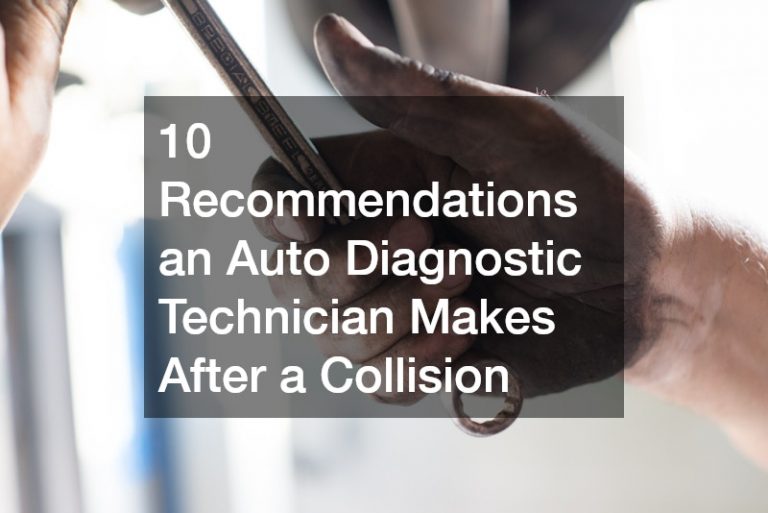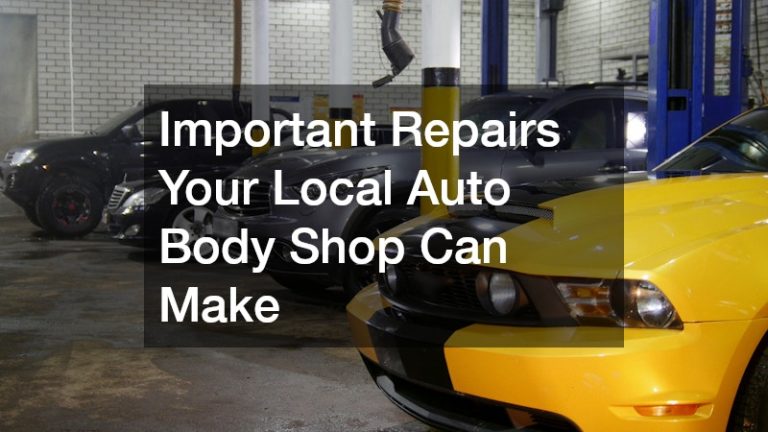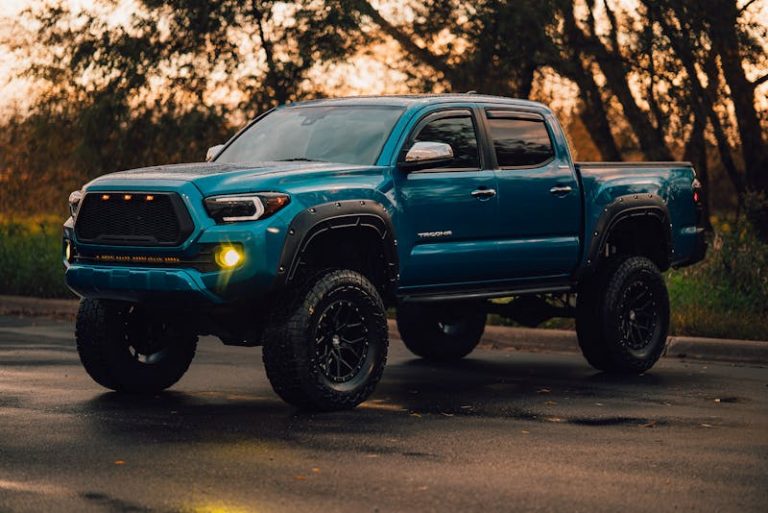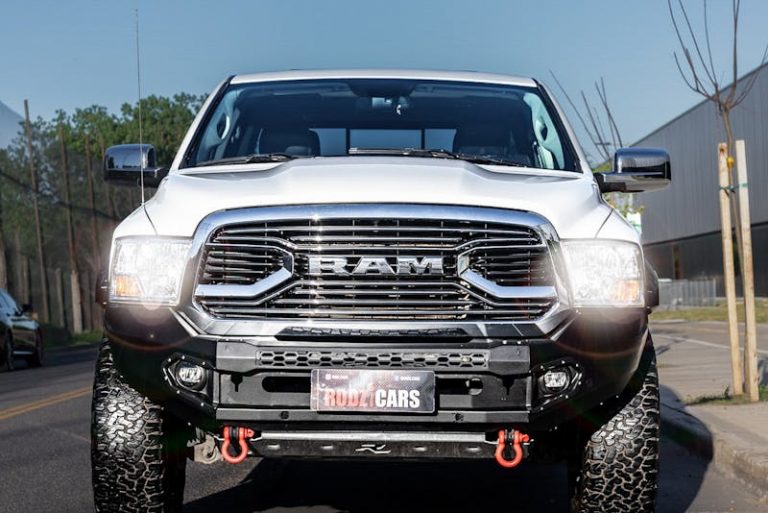

Foreign cars often boast advanced engineering, superior performance, and distinctive designs. However, owning one comes with a unique set of responsibilities and challenges, especially when it comes to repairs and maintenance. This comprehensive guide is designed to walk you through the intricacies of foreign car repairs. From understanding the core differences between foreign and domestic vehicles to locating skilled mechanics, sourcing quality parts, and even dealing with accidents or legal concerns, we’ll explore everything you need to keep your imported car running smoothly.
What Makes Foreign Car Repairs Different from Domestic Car Repairs?
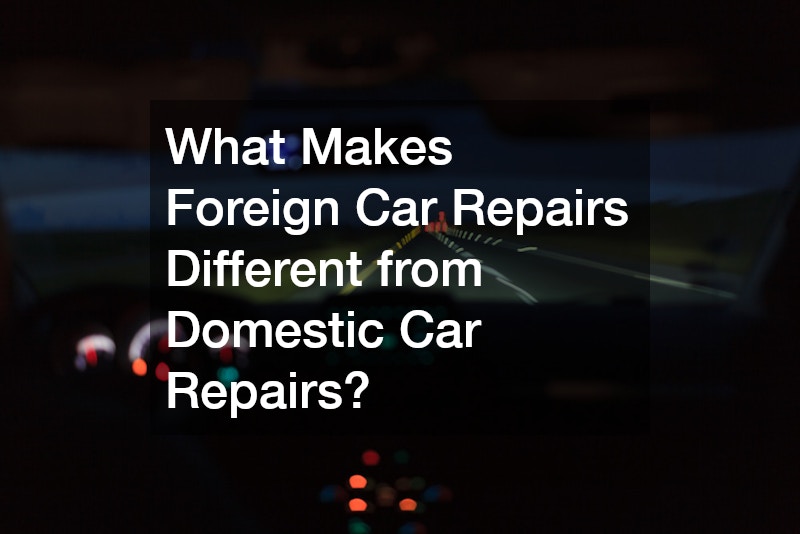
Unique Engineering and Design
Foreign cars—especially those from European and Asian manufacturers—are often engineered with different philosophies than their American counterparts. German brands like BMW and Mercedes-Benz emphasize precision performance, while Japanese brands such as Toyota, Honda, and Acura prioritize efficiency and longevity. These engineering differences mean that repair techniques, diagnostic approaches, and even common tools vary significantly. For example, Acura repairs often require different calibration techniques compared to domestic brands.
Availability of Parts
One of the biggest hurdles with foreign car repairs is the availability of parts. Original parts may need to be shipped internationally, increasing both wait times and costs. Domestic vehicles generally have a more accessible supply chain. Some local auto body shops may not have the right parts on hand for foreign models, especially rare or discontinued ones.
Specialized Tools Required
Foreign vehicles often require specialized diagnostic tools and repair equipment. Many German cars, for instance, utilize proprietary computer systems that require specific software. These tools are essential for accurate diagnostics and repair, particularly when working with systems like adaptive cruise control, advanced braking, or brake repair for high-performance foreign cars.
Cost Differences
Repairs for foreign cars typically come with a higher price tag due to the cost of parts, labor expertise, and the need for specialized tools. Unlike domestic repairs, which can often be handled by general auto mechanics, foreign cars frequently need services from experts who understand brand-specific nuances.
Specialized Mechanics and Services
Mechanics who work on foreign cars often undergo additional training or certification. These professionals have the skills to navigate complex systems. Finding the right auto mechanic may require some research, especially if you’re looking for someone experienced in Acura repairs or other specific brands.
How to Find Reliable Mechanics for Foreign Cars?
Certification and Expertise
When looking for a foreign car mechanic, certifications are key. Look for Automotive Service Excellence (ASE) certification along with brand-specific training. Mechanics with experience in auto body repair and electrical diagnostics are often better equipped to handle the intricacies of foreign vehicles.
Customer Reviews and Reputation
Online reviews and word-of-mouth referrals are valuable tools for assessing a mechanic’s reputation. Many local auto body shops are reviewed on platforms like Google, Yelp, and automotive forums. Consistent praise in areas such as brake repair, diagnostics, or towing services is a strong indicator of reliability.
Association with Foreign Car Brands
Some shops are officially partnered or certified by manufacturers. For example, a shop specializing in Acura repairs may have direct access to OEM parts and exclusive diagnostic tools. These affiliations ensure that repairs meet manufacturer standards.
Warranty and Insurance Compatibility
Make sure any mechanic you consider honors your vehicle’s warranty and works with your auto insurance provider. This is especially important in the event of an accident where both mechanical and cosmetic auto body repairs are necessary.
Geographical Availability
In larger cities, finding a mechanic who specializes in foreign cars is relatively easy. However, in rural areas, options may be limited. Some vehicle owners even choose to transport their cars using towing services to a qualified shop further away to ensure the best service.
What are Common Issues with Foreign Cars?
Electrical System Problems
Foreign cars, particularly European models, are known for complex electrical systems. These can be prone to failure, especially when aftermarket modifications or improper repairs are made. Experienced auto mechanics are essential in diagnosing and resolving these intricate problems.
Transmission Failures
Some foreign cars are notorious for transmission issues. Whether it’s from design, wear, or misuse, repairing or replacing a transmission requires specialized knowledge and tools. It’s also a common subject of extended warranty claims and auto insurance discussions.
Brake System Complications
Brake systems in foreign cars are often advanced, incorporating features like electronic brake-force distribution or ceramic pads. Improper brake repair can compromise safety, making it vital to use experienced professionals who understand these technologies.
Engine Performance Issues
From turbochargers to hybrid drive systems, foreign engines are complex. A misdiagnosed issue can lead to expensive repairs. Periodic diagnostics by a seasoned auto mechanic help maintain performance and prevent breakdowns.
Exhaust and Emissions Hurdles
Foreign cars must be modified to meet U.S. emissions standards, which sometimes leads to compatibility issues. Replacing or repairing components like catalytic converters or sensors is a common but costly necessity.
How Do You Source Parts for Foreign Cars?
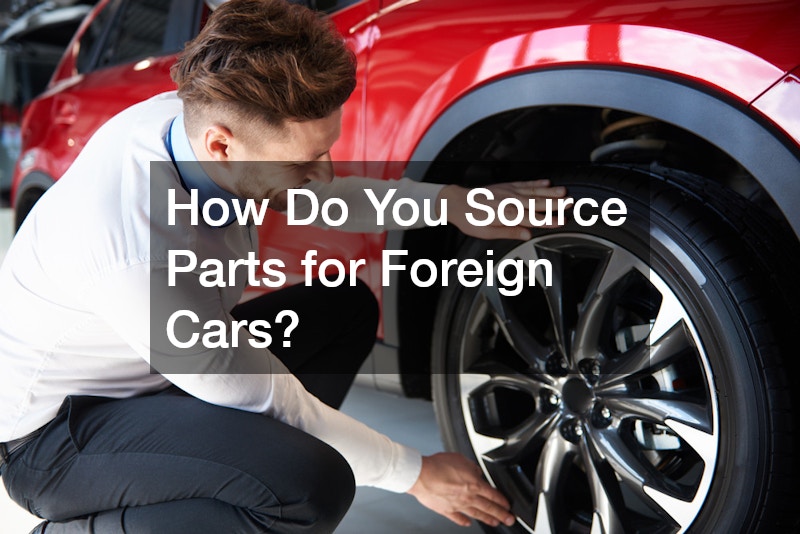
Authorized Dealer Options
Purchasing parts from authorized dealers ensures you receive OEM components. This is particularly important for high-performance systems, safety sensors, and ppf (paint protection film) that must meet original specifications.
Aftermarket Parts
Aftermarket components can be a cost-effective alternative. Brands like Bosch, Bilstein, and Brembo are reputable choices. However, be cautious when choosing aftermarket brake repair kits or engine parts—low-quality versions may compromise safety and performance.
Online Retailers
Websites like FCP Euro, ECS Tuning, and RockAuto offer an extensive selection of foreign car parts. They’re excellent resources for rare components or brand-specific tools. Always verify compatibility, especially for complex systems like infotainment or emissions controls.
Importing Parts
For some rare models, direct importation from Europe or Asia may be necessary. This option, while expensive, ensures authenticity. Use verified sellers to avoid scams and ensure you’re getting what you paid for.
Local Junkyards and Salvage
Salvage yards can be gold mines for discontinued or rare parts. If your foreign car needs a replacement bumper, auto body repair panel, or trim piece, this route is worth exploring. However, always inspect parts carefully for wear or damage.
What Maintenance Tips are Essential for Keeping Foreign Cars in Top Shape?
Regular Service Intervals
Follow your vehicle’s service manual strictly. Foreign cars are often less forgiving when services like oil changes or timing belt replacements are delayed. Skipping service can also void warranties and auto insurance claims.
Use of Genuine Parts and Fluids
Use only OEM-approved fluids for engine oil, brake fluid, and transmission. Foreign cars often require fluids with very specific properties. Using generic alternatives can result in malfunctions or void warranties.
Monitoring Diagnostic Codes
Foreign cars typically have advanced diagnostic systems. Using a quality OBD-II scanner can help you monitor the health of your vehicle. Early detection of issues helps reduce major repairs and towing needs.
Tire Maintenance and Alignment
Sport-tuned suspensions require precise alignment. Neglecting this can lead to uneven wear and reduced performance. Regular tire checks and alignment services from a qualified auto mechanic are crucial.
Seasonal Vehicle Care
Weather can significantly affect foreign car performance. Applying ppf helps protect paint from road salt in winter or sun damage in summer. Seasonal battery checks and fluid top-offs are also critical for longevity.
How to Handle a Foreign Car Breakdown?

Immediate Safety Measures
If your foreign car breaks down, prioritize safety. Use flares or triangles to alert others, especially on highways. Make sure to call a towing service experienced with foreign or luxury vehicles to avoid further damage.
Contacting a Professional
Always call a certified auto mechanic or local auto body shop experienced with your car’s brand. Proper diagnostics can prevent costly missteps. For collision-related breakdowns, reach out to auto body repair professionals who specialize in foreign makes.
Towing Services Recommendations
Flatbed towing is typically the safest option for foreign cars. Certain drivetrains—like Audi’s Quattro system—can suffer damage if towed improperly. Ask your towing provider about their experience with foreign vehicles before they hook up your car.
Temporary Fixes vs. Professional Repair
While DIY fixes like sealing a hose or jumping a battery can help you reach a mechanic, never rely on these as long-term solutions. Always follow up with a professional assessment.
Breakdown Kit Essentials
Pack a kit with jumper cables, coolant, flashlight, gloves, and a basic toolset. Including the contact number of a trusted auto mechanic or personal injury attorney is also helpful if your breakdown involves an accident.
Are Foreign Cars More Expensive to Insure?
Risk Factors Associated
Foreign cars often carry higher auto insurance premiums due to their value and repair costs. Some models are also more attractive to thieves, increasing risk factors.
Premium Rate Comparisons
European luxury vehicles like BMW or Audi usually have higher premiums than their Japanese counterparts like Acura or Lexus. Acura repairs are typically more affordable, resulting in slightly lower insurance rates.
Insurance Company Preferences
Some insurers specialize in foreign or luxury vehicle coverage and may offer better deals. Look for companies familiar with auto body repair and towing coverage specific to imported vehicles.
Influence of Vehicle Value and Safety
High safety ratings can reduce premiums, but the cost to replace foreign car parts can offset those savings. Ensure your policy includes comprehensive and collision coverage, particularly if you drive a newer model.
Negotiating Insurance Policies
You can often lower your premium by increasing your deductible or bundling your auto insurance with home or life policies. Always review what your insurance covers, especially when it comes to accident law firms and legal protection.
How Beneficial is Warranty for Foreign Car Repairs?
Manufacturer vs. Extended Warranties
Manufacturer warranties are great for the first few years, but once they expire, extended warranties become valuable. This is particularly true for vehicles known for high brake repair or electrical repair costs.
Coverage Limits and Loopholes
Always read the fine print. Some warranties exclude common issues or require specific maintenance procedures. Failure to comply could affect claims—especially if auto body repairs are involved after an accident.
Transferability of Warranties
A transferable warranty increases resale value. Buyers feel more confident when purchasing a used foreign car that’s still under coverage for major systems.
Claiming and Process Efficiency
Work with auto mechanics or shops familiar with warranty claim procedures to speed up the process. Avoiding miscommunication with the warranty provider can save time and frustration.
Cost-Benefit Analysis
While extended warranties come with a cost, they’re often worthwhile for foreign vehicles. Consider how frequently repairs are needed and the average cost of parts like transmissions, brake systems, or electronics.
How Does Climate Affect Foreign Car Repairs?
Temperature Extremes and Performance
Extreme heat or cold can affect engine performance, battery life, and fuel efficiency. Cold climates may require winter tires or block heaters for foreign cars not originally designed for such environments.
Moisture and Corrosion Concerns
Rain and humidity accelerate rust, particularly in imported cars with less corrosion-resistant underbodies. Regular inspections and ppf application can help mitigate these effects.
Seasonal Maintenance Advice
Change fluids seasonally and test your vehicle’s battery. Salt buildup in winter can damage undercarriage components, especially in areas where local auto body shops might not be experienced in foreign car corrosion issues.
Material Durability and Adaptation
Materials used in foreign cars may not always adapt well to extreme climates. For instance, soft leather interiors from European cars can crack in intense heat, while electrical systems may suffer in freezing temperatures.
Long-term Climate Impacts
Garaging your car and using protective coatings can extend its lifespan. Routine cleaning and maintenance are crucial for keeping climate-related damage at bay.
What are the Best Practices for Enhancing the Longevity of Foreign Cars?

Proactive Maintenance Schedule
Never delay scheduled maintenance. Use reminders or apps to stay on top of oil changes, fluid flushes, tire rotations, and brake repairs.
Quality Replacement Parts and Fluids
Stick with OEM parts or high-end aftermarket options. This applies to everything from air filters to engine oil to paint protection films (ppf).
Regular Testing and Diagnostics
Periodic testing helps detect problems early. Partner with a trusted auto mechanic who understands your car’s make and model.
Educating the Driver
The more you know, the better your car will run. Learn about dashboard indicators, sounds, and behaviors specific to your vehicle. And if you’ve been in an accident, knowing your rights and contacting a personal injury attorney or accident law firm can protect both your finances and your vehicle.
Investing in Quality Storage Solutions
Use a garage or invest in a weather-resistant car cover to shield your foreign car from UV damage, dirt, and precipitation. This also helps preserve ppf and exterior components.
Foreign cars offer a blend of style, performance, and innovation. However, they also require specialized care and understanding. From finding the right auto mechanic, navigating auto insurance, sourcing reliable parts, to handling emergencies involving towing or auto body repairs, being informed is key. Follow this guide to ensure your foreign car stays in optimal condition and delivers the driving experience you love—for miles to come.

